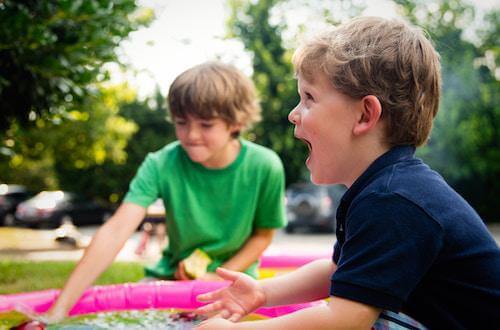Estimated reading time: 3 minutes
We all have the very best intentions for our children; however, unexpected events do occur. These can be unsettling and sometimes traumatic for ourselves and our children. For instance, separation or divorce of parents, sorting out family custody, financial pressures, serious illness or deaths in the family, can put a lot of pressure on all family members.
We may be struggling to come to terms with these events ourselves, and feel overwhelmed or stretched. It can be hard just to support ourselves emotionally and get through each day. When a crisis occurs, generally we switch to survival mode (rather than thriving), as our energy is consumed by coping with the situation. Our children may seem like they’re too small to understand what is going on. Their limited language skills may make them seem immune to the stress and anxiety that their parents may be experiencing. They might seem as though they are not impacted by these events. In reality, it’s the opposite that is true.
Children feel things very strongly on an energetic and emotional level. They are not desensitised to life, they are in tune with life. Children feel the world before they experience it in a more rational way, in line with their brain development. Children are extremely sensitive to their parents’ energy and are in tune with how their parents are feeling right from conception. From birth, to around six to eight years old, a child experiences the world in an emotional way. This is because the reasoning centres of the brain that allow logical or rational thought is not developed until between the ages of seven to twelve (LearningRx). Having loving parents to care for and help a child make sense of life’s events, lovingly and consciously, helps them to experience the world in a joyful, flowing way. For example, if a father leaves the home when the baby is six months old, a baby without the ability to reason may automatically feel they are not good enough to be loved by their father. In this situation, the mother, being the only responsible adult present, needs to recognise that such a major event, unless worked through emotionally, will have a major impact on their child’s life.

If left unaddressed, the child could struggle with abandonment issues later in life. If the mother talks to the baby and explains with love, that daddy leaving had nothing to do with them, the love and warmth will soothe and put things into perspective for the baby. I have seen many people in my kinesiology practice as adults who still feel the ramifications of a major crisis that happened in their very early childhood years. It is common for my client’s parent to have been overwhelmed at the time. They were so busy handling their own emotions, that they didn’t have the capacity to give loving support to the client as a child.
When we, as parents, have children, we take on the responsibility to support our child until they are old enough to take care of themselves. In addition to physical and financial support, this includes emotional support as well. Children are resilient; however, their well-being, self-image, and self-esteem depend on a loving adult helping them make sense of the world, particularly in times of crisis.
To discover more about parenting and children, click here.









